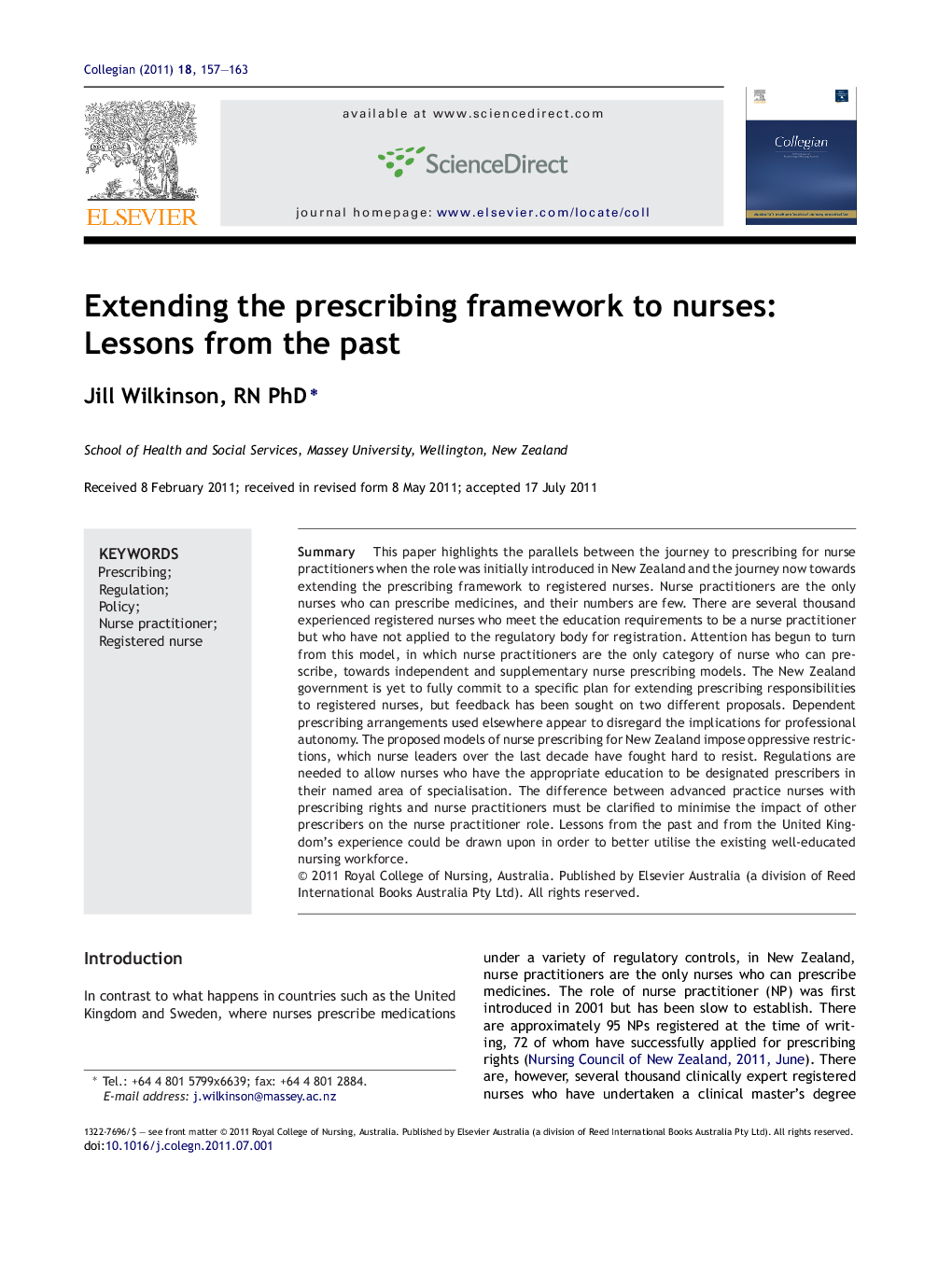| Article ID | Journal | Published Year | Pages | File Type |
|---|---|---|---|---|
| 2646427 | Collegian | 2011 | 7 Pages |
SummaryThis paper highlights the parallels between the journey to prescribing for nurse practitioners when the role was initially introduced in New Zealand and the journey now towards extending the prescribing framework to registered nurses. Nurse practitioners are the only nurses who can prescribe medicines, and their numbers are few. There are several thousand experienced registered nurses who meet the education requirements to be a nurse practitioner but who have not applied to the regulatory body for registration. Attention has begun to turn from this model, in which nurse practitioners are the only category of nurse who can prescribe, towards independent and supplementary nurse prescribing models. The New Zealand government is yet to fully commit to a specific plan for extending prescribing responsibilities to registered nurses, but feedback has been sought on two different proposals. Dependent prescribing arrangements used elsewhere appear to disregard the implications for professional autonomy. The proposed models of nurse prescribing for New Zealand impose oppressive restrictions, which nurse leaders over the last decade have fought hard to resist. Regulations are needed to allow nurses who have the appropriate education to be designated prescribers in their named area of specialisation. The difference between advanced practice nurses with prescribing rights and nurse practitioners must be clarified to minimise the impact of other prescribers on the nurse practitioner role. Lessons from the past and from the United Kingdom's experience could be drawn upon in order to better utilise the existing well-educated nursing workforce.
